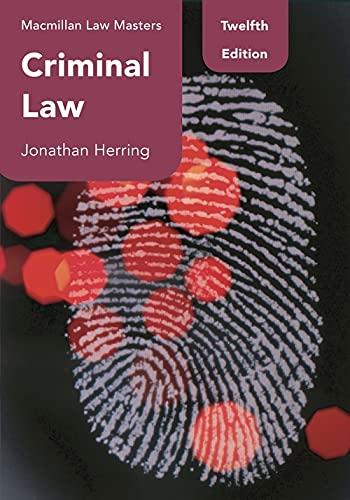J-lI'IIJII'IJ'I \"ULIULLLULLULIL-Jlunlti QUESTION 1 Short Answer lQuestions a} \"What is meant by the concept of 'Separation of Powers' and how this concept is important to Westminsterstyle Constitutions in the Pacific Region? b} 1What are prerogative powers? In your answer, briey refer to die case of the Fiji Court of Appeal in Qarase v Eainimarama {EDGE} FICA 9. \"What were the court's findings as to the powers of the President of Fiji retaining prerogative powers, dismissing the Prime Minister and dissolving the Parliament? c} 'What is meant by the terms 'UnitaIy system' and 'Federal system'? Explain how iey operate and what their key differences are. Give examples from at least two jurisdictions. d} In the judicial interpretation of written Constitutions, what is meant by the term of 'strict legalism I constmctivism' versus a more 'loose approach' to Constitutional interpretation. Give case examples. e} Describe some relevant aspects of the procedure, role and importance of constitutional amendments. In your answer, briey refer to and include the role and nature of a referendum. f} Discuss the concepts of rigidity and exibility within the constitutional law context and in regards to your own jurisdiction. \"that are some of the advantages I disadvantages of each concept? g} In the nationbuilding process and emancipation in the South Pacific, think about the legal impact[s} of colonial powers on constitutions in the South Pacific. Outline any common elemenb's that may stem from these impacts with relevance to the evolution of Constitutions in the region. h} Briey discuss the relationship between a written constitution in the Pacific Region and other sources of law (law that is nonConstitutional law]. What are these other sources of law and what is their importance compared to the written constitution? i} What are sources of constitutional law beyond I ouEide the written constitution iEelf and how do these sources contribute to Constitutional Law? Briey discuss the role and importance of these sources. j} What is the nature and meaning of a 'constitutional convention' widtin the South Pacific Region? In your explanation, contrast constitutional conventions with customary law and mention the ways both constitutional conventions as well as customary law relate to written Constitutions







